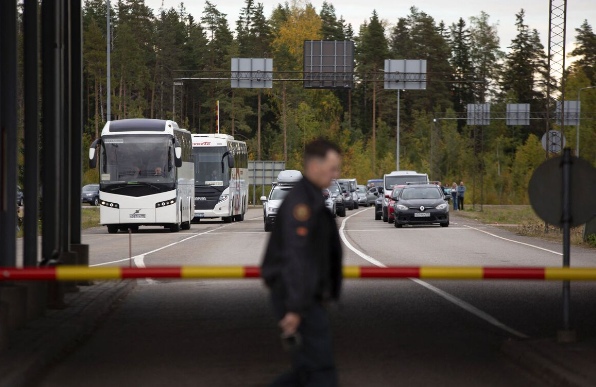A controversial law allowing Finland to reject asylum seekers on its eastern border with Russia came into force on Monday, despite widespread criticism from human rights organisations who said it violates international migration law and sets a dangerous precedent, POLITICO reports.
The new law, proposed by the right-wing government and passed overwhelmingly by lawmakers, is aimed at combating what Prime Minister Petteri Orpo called Russia’s “weaponisation” of migration.
Finnish authorities have said they are facing an increase in asylum seekers from the Middle East and Africa and accuse Moscow of encouraging the influx, which the Kremlin has repeatedly denied. In April, Finland indefinitely closed its 1,340-kilometre border with Russia. The Finnish interior ministry told POLITICO:
Instrumentalised migration is one way that Russia can put pressure on and affect the security and social stability of Finland and the EU. This new act prepares Finland for the possibility that Russia may continue to exert pressure for a long time and in more serious and larger-scale ways.
The Deportation in Case of National Emergency Act would allow a temporary exception to the constitution under which border guards could block asylum seekers from entering the country and deny them the right to appeal.
Human rights groups have criticised the deportation bill, saying it contradicts the Finnish constitution, Helsinki’s international obligations and EU law. Pia Lindfors, director of the Finnish Refugee Advice Center, told POLITICO:
The rule of law in Finland has been shaken.
The principle of non-refoulement in international law prohibits sending asylum seekers back to countries where they may face persecution, torture, inhuman or degrading treatment.
The EU Migration Pact, agreed this year and coming into force in 2026, introduced the crisis clause to make it easier for countries to return people who are encouraged by third-country governments to migrate illegally to the EU.
The main criticism of the law from human rights groups is that it allows migrants to be expelled – when they are physically forced to return across the border. Expulsions are prohibited under both the European Convention on Human Rights and the Charter of Fundamental Rights of the European Union. Frank Johansson, director of Amnesty International Finland, told POLITICO:
This law makes it possible to do pushbacks, which are always illegal. It goes much further than crisis regulation in the new EU migration pact; and it gives a green light to violence on the borders. The law should have never been enacted.
Migration authorities usually determine whether a person is in need of protection in an interview that can last several hours. According to Johansson, this law will require border guards to fulfil this role. He also added:
If there is a young homosexual man coming from Russia, how will the border guards assess that it’s risky for him to go back? It doesn’t show on the outside.
The Council of Europe Commissioner for Human Rights, Michael O’Flaherty, has previously expressed concern about the compatibility of the draft law with human rights and called for it not to be adopted.
The law “could set a destabilising precedent, at a time when the global asylum system is already under great pressure,” O’Flaherty wrote in a letter last month to the speaker of the Finnish parliament.
President Alexander Stubb said the law had the support of other EU countries after the European Policy Community met in the UK last week. He noted:
Many people came to say that the instrument looks good, especially the leaders of the Baltic countries. And it may be that they go out and copy it.
European Commission President Ursula von der Leyen addressed the issue of eastern borders in her keynote speech to the European Parliament last week before it voted to elect her for a second term.
“Russia is luring migrants from Yemen up north and pushing them deliberately against the Finnish border,” von der Leyen said, proposing to triple the number of European border- and coastguards to 30,000.
The Commission said it will analyse the Finnish law to see if it complies with EU law. Spokesperson Christian Wigand said:
Member states have an obligation to protect their external borders. They are the ones best placed to define how they do this in practice, in full compliance with fundamental rights.
